
About Island Press
Since 1984, the nonprofit organization Island Press has been stimulating, shaping, and communicating ideas that are essential for solving environmental problems worldwide. With more than 800 titles in print and some 40 new releases each year, we are the nation's leading publisher on environmental issues. We identify innovative thinkers and emerging trends in the environmental field. We work with world-renowned experts and authors to develop cross-disciplinary solutions to environmental challenges.
Island Press designs and executes educational campaigns in conjunction with our authors to communicate their critical messages in print, in person, and online using the latest technologies, innovative programs, and the media. Our goal is to reach targeted audiences-scientists, policymakers, environmental advocates, urban planners, the media, and concerned citizens-with information that can be used to create the framework for long-term ecological health and human well-being.
Island Press gratefully acknowledges major support of our work by The Agua Fund, The Andrew W. Mellon Foundation, Betsy & Jesse Fink Foundation, The Bobolink Foundation, The Curtis and Edith Munson Foundation, Forrest C. and Frances H. Lattner Foundation, G.O. Forward Fund of the Saint Paul Foundation, Gordon and Betty Moore Foundation, The Kresge Foundation, The Margaret A. Cargill Foundation, New Mexico Water Initiative, a project of Hanuman Foundation, The Overbrook Foundation, The S.D. Bechtel, Jr. Foundation, The Summit Charitable Foundation, Inc., V. Kann Rasmussen Foundation, The Wallace Alexander Gerbode Foundation, and other generous supporters.
The opinions expressed in this book are those of the author(s) and do not necessarily reflect the views of our supporters.
Unnatural Selection
Unnatural Selection
HOW WE ARE CHANGING LIFE, GENE BY GENE
Emily Monosson

Washington | Covelo | London
Copyright 2015 Emily Monosson
All rights reserved under International and Pan-American Copyright Conventions. No part of this book may be reproduced in any form or by any means without permission in writing from the publisher: Island Press, 2000 M Street, NW, Suite 650, Washington, DC 20036.
ISLAND PRESS is a trademark of the Center for Resource Economics.
Library of Congress Control Number: 2014939900
 Printed on recycled, acid-free paper
Printed on recycled, acid-free paper
Manufactured in the United States of America
10 9 8 7 6 5 4 3 2 1
Keywords: rapid evolution, antibiotic resistance, vaccines, pesticide resistance, Roundup, cancer treatment, bedbugs, toxics, epigenetics
Contents
Acknowledgments
Most of these chapters touch upon toxic chemicals in one way or another; all of them refer to evolutiona topic that I have just begun to explore. For providing me with the opportunity to think about toxic chemicals and evolution in our lifetime, or rapid evolution, I would first like to thank Island Press and my editor Emily Davis. Emily has helped me rein in my tendency to head off along some marginally related tangent, or cram each paragraph with all sorts of fascinating but not exactly relevant scientific tidbits.
Throughout this process I have relied upon the contributions of many scientists, using their published research and, beyond that, calling upon them to be interviewed, or to review chapters, portions of chapters, or answer questions from, in most cases, a complete stranger. Many offered further suggestions, corrections, and encouragement though an exchange of e-mails. Despite their best efforts I am sure many omissions, mistakes, or inaccuracies remain, for which I am fully responsible. The list of those scientists who kindly contributed to this book includes but is not limited to: Josh Akey, Claude Boyd, Steven Brady, Adria Eiskus, Suzanne Epstein, Amir Fathi, Marco Gerlinger, Greg Jaffe, Norman Johnson, Paul Klerks, Katia Koelle, Ben Letcher, Emmanuel Milot, Mike Owen, Colin Parrish, Rick Pilsner, Andrew Read, Christina Richards, Alvaro Romero, Arjun Srinivasan, Penny Shockett, Judith Weis, Andrew Whiteley, and Issac Wirgin.
Heather Goldstone, Robert Scherzer, Banu Subramanian, Brent Ranalli, Michelle Wick, Sofia Echegaray, John Saul, Penny Shockett, and Ben Letcher read through early chapters, helping me to frame these stories of resistance (Penny and Ben did double duty, helping with both science and context). Their comments were greatly appreciated.
Matt Worcester, Abby Letcher, and Maggie Gold agreed to share their own experiences so that others might become more aware of the more immediate health effects of rapid evolution; and I am grateful to them for helping to provide the why should I care behind the science.
I would also like to acknowledge the Department of Environmental Conservation at the University of Massachusetts, Amherst, where I hold an adjunct position, and where full access to the UMass library systems databases and online journals made this project possible. I am grateful to Jason, Steve, and Ella and the rest of the staff at the Lady Killigrew who make those of us who set up shop every morning in the coffee shop by the river in the Montague Mill feel so welcome.
There are not enough words of gratitude to thank my incredibly patient husband, Ben Letcher, who is encouraging and supportive and who always offers an honest opinion (even during the World Cup).
Lastly, I would like to acknowledge our children, Sam and Sophie Letcherit is with them and their cohort in mind that I write this book.
I NTRODUCTION
Life-Changing Chemicals
A leukemia patient who once ran marathons, now barely able to walk down the block, waits anxiously as his doctor struggles to find a drug that can outsmart chemo-defying cancer cells. An Iowa farmer scratches her head, wondering how to save her corn crop from weeds now resistant to the once in a century herbicide. A father paces anxiously by his daughters bedside, hoping that this next round of antibiotics will do the trick. Bedbugs spread throughout a home, tucking into floorboards and beddingfeeding on its slumbering inhabitants and driving them nearly insane. These arent scenes from the latest dystopian sci-fi novel; they are real problems, affecting people everywhere, and they all have one thing in common. We beat life back with our drugs, pesticides, and pollutants, but life responds. It evolves.
When I was in school, evolution was the descent of man, the glacially slow transformation of life from single-cell organisms to complex sentient beings, from a few species into Darwins endless forms most beautiful. This was evolution writ large, read through fossils found layered in the earths crust and, increasingly, through ancient DNA caught in amber or scraped from the bones of a long-dead ancestor. Underlying those large changes are subtle ones: a slightly longer finger bone in a bat; a minor change in the pattern on a butterfly wing; a deeper purple in a flowers petal. This is evolution writ small.
If we could peer into lifes inner workings, whether bacteria, bug, fish, or frog, we would see that the very code of life is more fluid than once imagined. Most often, changes in DNA or its expression are unnoticeable or unimportant, but every once in a while, a doozy of a mutation pops up: a lethal strain of bacteria gains the ability to chew up and spit out the last effective antibiotic; or a malaria-carrying mosquito brushes aside DDT, unaffected; or the daughter of prehistoric farmers finds she is able to tolerate milk into adulthood. While such variations may well be the spice of life, evolution requires favorable conditions for the selection of these new flavors. A mutation that detoxifies DDT is only helpful when mosquitos are under pressure from insecticide; digesting milk only helps where milk is available and when drinking it contributes to a brighter future for the whole family. And a traits surviving under pressure is of little use to the larger population unless it is a trait that can pass from one generation to the next. When beneficial heritable characteristics, whether through mutation or other means, arise in the right place, the right time, and in the right species, they may sweep through populations.
Next page

![Tim Lebbon - SNAFU: Unnatural Selection [anthology]](/uploads/posts/book/920220/thumbs/tim-lebbon-snafu-unnatural-selection-anthology.jpg)
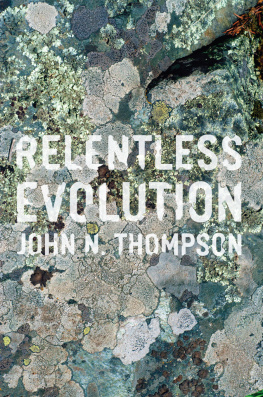
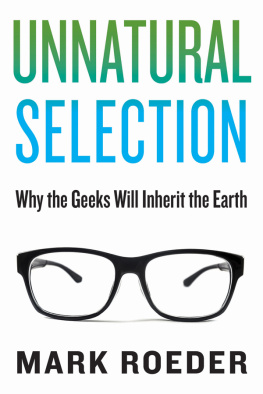
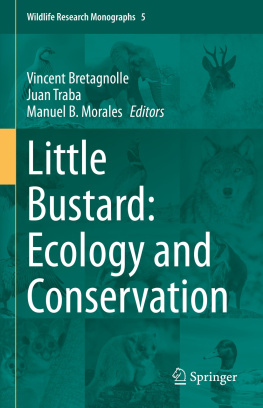
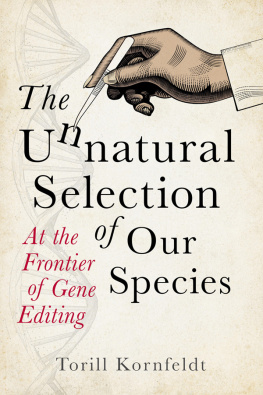
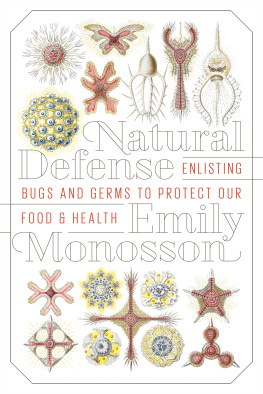
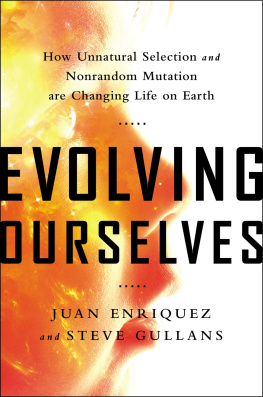

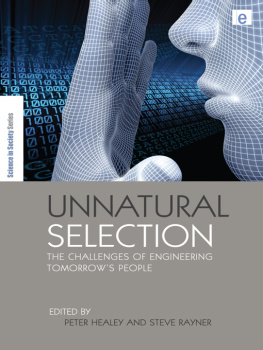
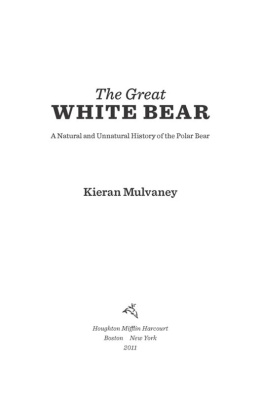


 Printed on recycled, acid-free paper
Printed on recycled, acid-free paper